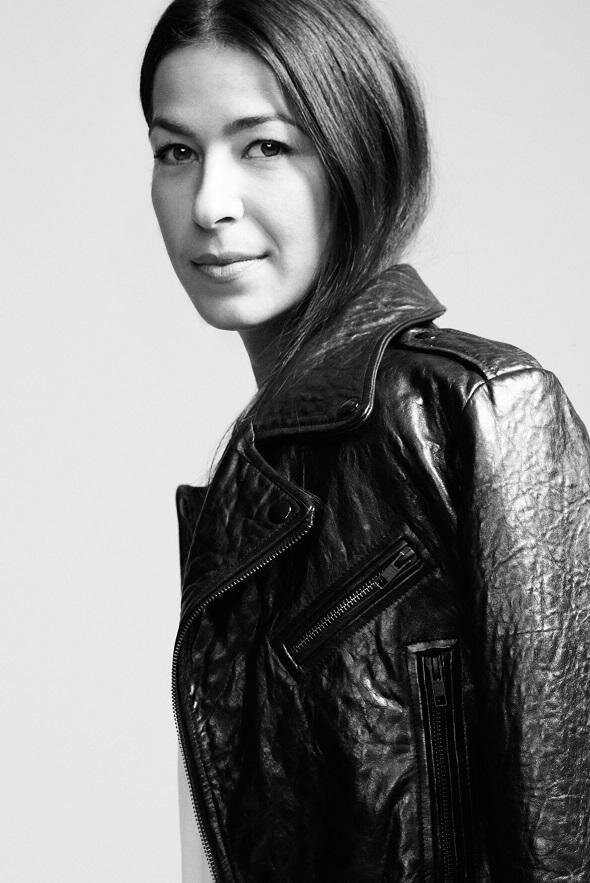Rebecca Minkoff’s Latest Trend? Empowering Female Founders in the Fashion Industry and Beyond
You don’t have to be a fashionista to know who Rebecca Minkoff is. The fashion designer, renowned for her edgy, feminine and flirty handbag and apparel brand—launched in collab with her brother Uri Minkoff—skyrocketed to global recognition after her first capsule collection in 2001 (with a little help from actress Jenna Elfman who wore Rebecca’s now-iconic “I Love New York” t-shirt on The Tonight Show with Jay Leno, remember that?!). Today, her brand and her name have withstood the test of time, and it’s not just because of her award-winning designs.
Rebecca’s attainable luxury items are just one part of what makes everyone fangirl over this fashion muse, but it’s her relentless support for other women and female entrepreneurs that has set her apart from everyone else in fashion today.
In 2018, Rebecca focused her efforts on an inspiring new project in collaboration with the Women’s March, RM Superwomen—a platform that worked to encourage women around the world to be brave and courageous (today, it has transformed into her intimate and real weekly podcast of the same name). Later that year, she launched the Female Founder Collective, a network of businesses led by women that supports other female-owned businesses. We’re happy to report both initiatives are still empowering women in 2020 and beyond.
Oh and one last thing... did we mention she is raising three kids while managing her successful global brand and all of the side projects that go along with it?! Yup. Perhaps Rebecca should be a guest on her own podcast, because she is seriously a superwoman in our eyes.
The void: First things first, when did you start having a vision for yourself and know that you wanted to become a designer?
Rebecca Minkoff: When I was eight, there was a dress that I wanted, and my mom didn't buy it for me—instead she taught me how to sew. So from there, I began loving the idea of making my own clothes. When I was 12, I made my dress for my bat mitzvah, and that is when I really got into making clothes in a way that made me think: “wow, this could be a fun gig!”
Costume design and sewing was something I just continued with and had a real passion for. At one point, I thought I wanted to be a geneticist and go to John Hopkins. But then I was like, “nope, I don't want to do this.”
I was lucky that my brother knew a designer in New York and I was able to get a paid internship with them. I moved to New York after graduating and started to work right away.
I spent all my spare time [designing clothes] and then also during work. The minute I figured out how I could monetize it, sell it, and start a business, that became my goal. And if I failed, then I would just work for someone else. That was my take on it. I didn't feel like there was anything to lose—you're young, what are you losing?
TV: What was the most difficult part of starting your business and building your brand?
RM: I think in the beginning, I wasn't a business person at all. So I didn't know how to cost my garments, I didn't know how to structure it, any business 101 or you name it, I didn't know how to do it. So I think that made it difficult and I probably made a lot of bad decisions because of that.
Now, it's different challenges: How do you balance the art of commercial and also the art of design? How do you make sure that you're constantly standing for something, but also pay the bills.
I realized, you can’t turn a blind eye to having business acumen. If it's not natural to you, that's not a skill that's easily learned. After 15 years, I definitely know it, but I don't really know it as well as my brother does, who is a CEO.
TV: With the difficulties of starting your brand and learning the business, what motivated you to stay on your path?
RM: I can never think of something else I'd rather do. So when I can't think about what that other option is, then I just I'm like, “alright, well, I gotta keep going.” For me, there's nothing else that I want to wake up doing everyday.
Maybe if I had loved surfing as much, or if I wanted to do my other side gig, which is being a doula, but I don't want to get up in the middle of the night and attend the birth—so, there goes that career.
TV: We love all you’re doing to support women, specifically female entrepreneurs. What was your driving force behind starting the Female Founders Collective?
RM: There were several factors. The fashion industry is primarily made up of women, but it's women who are not helping to build each other up. It's changing now, but it was the Devil Wears Prada and that was a tough part of coming into the fashion industry as an outsider. You just feel like you're not part of the club and you're not really that supported, and I've always hated that feeling. Then you look outside the fashion industry, and you see male-dominated industries where women aren't feeling supported there either. So I have this platform, and I wanted to use it for something way more important than a crossbody bag.
[The Collective] has allowed me to find different ways to help affect 50% of the population—women. Whether it's women connecting on Female Founder Collective, or people recognizing our logo, or people attending one of our events where they learn something that helps their business, I'm trying to find and share ways women can become successful. I look at it through the lens of, if I had been able to join this group when I first started, I think I would have probably been a lot more successful, a lot more quickly.
When you have a group of people who are uniting for a common good, who want to really help each other, you are able to do amazing things.
TV: What has been a self-motivating tool or practice that, you believe, has been critical to your success?
RM: I'm a big list maker. I don't know if that's practical, but I break goals down into very tactical activities. It's not just something I think about—I have to write down the goal, break it out into both short-term and long-term targets, then within those targets, I break those down further into daily tasks. You then take that and ask yourself if it’s going to help you towards the overall goal.
To me, I think it just gives you a straight path. And then you can say “no” to some of those bright and shiny things that may look great, but will take you off your path. You have to maintain your full focus on what gets you to your goals, whatever they may be!
TV: What is the best advice you would give women that are trying to start their own company or business right now?
RM: I think that you really have to take a deep look into your soul and really go through what it’s truly going to take to start your own company. I meet a lot of women, and most of them are shocked at how hard it is and how much of a struggle it is. I think that people just think it becomes that perfect photo on Instagram or it's going to be as easy as putting your product up for sale on Amazon—I don't know where that idea comes from. But even I had the idea that when you get to the level that I’m at now, it would be easy... and it's not.
You have to decide at the onset, “are you up for this?” It's a marathon, and it’s years and years and years of working hard just to feel like you got only a little bit successful. So I think you have to start there. Are you willing to accept that? And are you willing for the buck to stop with you? Are you ok with the idea that you are going to miss your Thanksgiving if your website crashes? That you are going to have to work late nights and weekends and not see your kids as much? You’re going to have to really get comfortable there.
And then, if you still want to start your own business and dive in, get ready for the ride. It's not always going to be the best ride—there are going to be ups and downs and you’re going to have to have a core of steel. It's almost like this resilience that you just keep going back to or you keep finding solutions to or you just keep attacking at it. Basically, with all that fight in you, you keep persisting.
Be sure to follow Rebecca and all of her incredible projects here, here and here.




